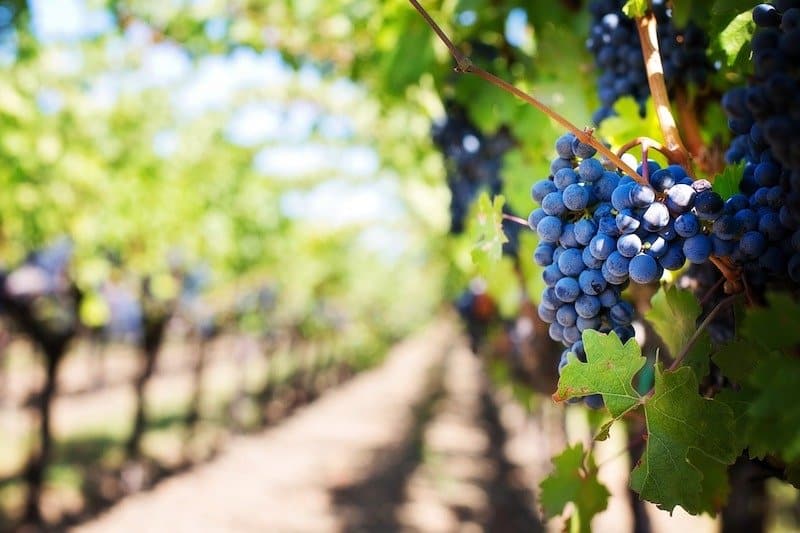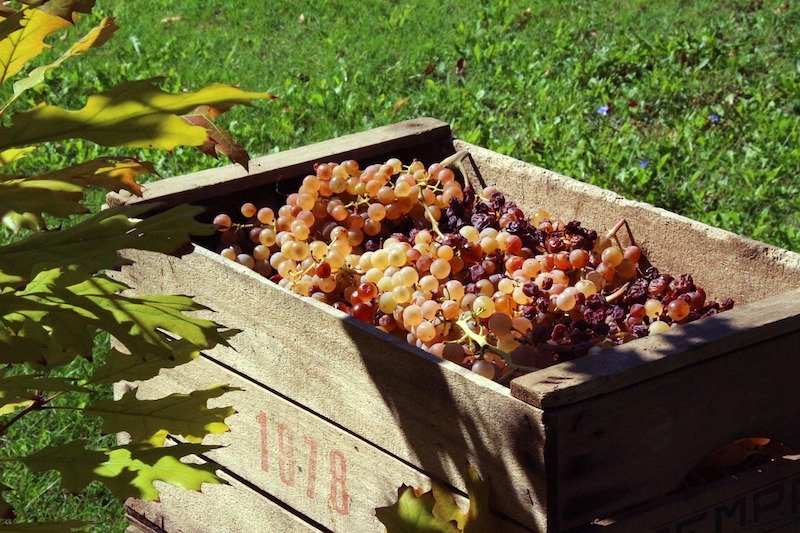Can Grapes Ferment on the Vine?
Most of us know that, to make wine, grapes are picked off the vine and then fermented. But maybe there’s a delay in picking them, and they’ve been growing on the vine for some time. Can grapes ferment on the vine?
Here I’ll aim to answer your questions surrounding when the fermentation process starts for grapes. You’ll find fermentation of grapes only happens when they’re taken away from their source of oxygen (the plant or vine itself) and their skin that forms a protective barrier is broken. Keep reading for the details.
Can Grapes Ferment on Their Own?
For any fruit to ferment, bananas, apples, grapes, or otherwise, the conditions need to be suitable for the growth and development of bacteria to promote fermentation. When grapes are on the vine, the skin protects the fruit from bacteria or mold. Grapes also have plenty of oxygen when they’re on the vine, so they can’t undergo the fermentation process.
However, if nobody plucks the grapes, their skin will eventually weaken, causing mold and bacteria to penetrate inside. When that happens, grapes will ferment naturally; however, this doesn’t occur that often. If unpicked, these grapes will fall to the ground, and insects or birds will eat them.
If the grapes fall to the ground, there’s a small chance for them to ferment on their own. It mostly happens when their skin has been broken so that yeast can access the grapes’ sugars on the inside. However, in this situation, fermentation isn’t likely to occur because the general conditions aren’t ideal (oxygen is still present, more yeast would be needed, and if it’s cold, fermentation will be very slow).
Why Do Grapes Ferment After Being Plucked?
Yeast and oxygen are essential factors in fermentation. Yeast particles float in the air and can settle on grapes. If their skin is healthy, the yeast won’t affect the grapes, and the fermentation won’t start. Moreover, when grapes are plucked, oxygen doesn’t get to their cells. This creates anaerobic conditions or the absence of oxygen. When that occurs, fermentation starts.
If winemakers want to speed up fermentation, they might add yeast to crushed grapes. The high sugar content in grapes will convert to alcohol with the help of the yeast. During fermentation, yeast will create a distinctive wine flavor. Yeast is also responsible for the wine body, which is essentially how light or heavy wine tastes when drank.
As the alcohol levels rise, yeast levels decrease. This is because yeast tends to die in the presence of alcohol. When the alcohol is at the right level, the yeast won’t affect the grapes anymore. This is also a sign that fermentation is done and that wine is ready for consumption. Of course, the longer it sits, the better the flavors and taste.
How Much Alcohol Is in Grapes?
As we’ve mentioned above, alcohol is a byproduct of fermentation. Since fresh grapes plucked from the vine haven’t started fermenting yet, they contain little to no alcohol. So you don’t have to worry about eating grapes and getting tipsy.
But you’ve probably seen pictures of animals eating grapes and looking drunk. Why is that? The reason could be that grapes have been sitting on the plant for too long, and natural fermentation has occurred. Or, animals have eaten grapes from the ground that have started fermenting because they were exposed to oxygen. Such grapes would look like raisins, so people would be able to distinguish them from good grapes.
Uses for Fermented Grapes
Fermented grapes don’t taste good and are often too sour. If you ate too many, you’d probably get sick. Therefore, avoid eating those raisin-like grapes. But fermented grapes have another purpose. Manufacturers use them to make wine, as you probably already know. As fermentation occurs, it transforms the sugars in grapes into alcohol.
But can grapes ferment on the vine so that you can make your own homemade wine? Although they probably won’t ferment on the plant, you can pick them and wait for the fermentation to work its magic. Then, use fermented grapes to make wine or grape soda or juice in the summer.
Keep in mind that other than that, fermented grapes don’t have other uses. For example, you can’t put them in cakes or other desserts.
In Summary
As with any fruit, grapes need to be in a very specific environment for fermentation to occur. If grapes are still on the vine, because they’re receiving oxygen from the plant and their skin is (usually) still intact, fermentation won’t occur.








